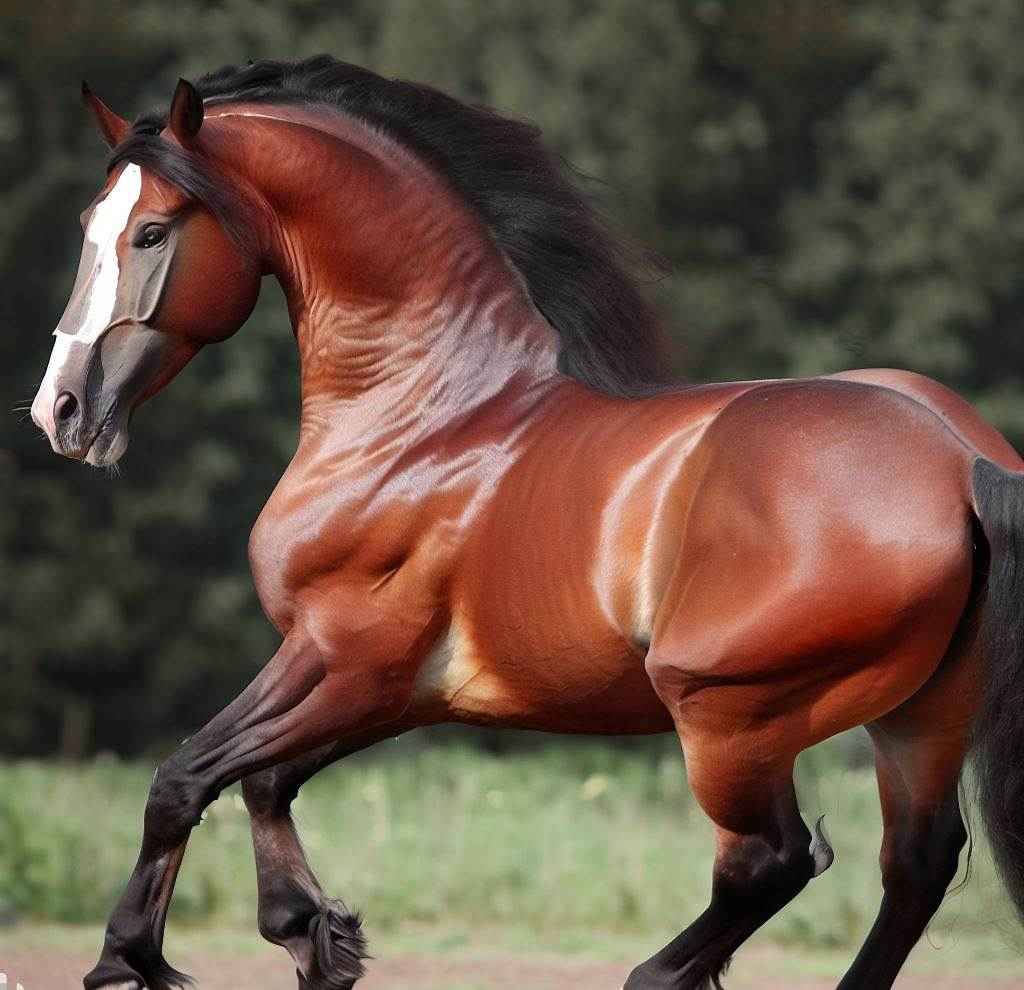Why Do Horses Bite?
Do Horses Bite? Horses are generally decent animals but they can bite with the seriousness depending on the some conditions. Understanding the reasons behind their behavior and taking appropriate training and management measures is important for making their safety and health of both humans and horses. Human bites from horses do occur periodically and albeit they are rare. Between 3% and 4.5% of all recorded injuries involving horses are caused by bites. Horses are appealing animals famous for their kind nature.
They can bite, nevertheless, just like any other animal, under particular situations. Horse biting behavior varies and it is essential to understand the context. Playful nipping is common among young horses and is usually harmless to akin to human babies exploring the world through touch. It’s essential to educate young horses about boundaries during this phase. On the other hand, aggressive biting can be a problem.
It often stems from fear, frustration or dominance issues. In such cases the horse may inflict harm by making it vital to address the root causes promptly through training and behavior modification. Horses may also bite defensively when they feel threatened or cornered. This is a natural survival instinct. Recognizing their body language such as pinned ears or raised head, can help prevent such situations.
Introduction:
When it comes to understanding our equine companions so, there’s more to them than meets the eye. Horses with their majestic presence and gentle demeanor they often leave us in awe. However, it’s essential to delve deeper into their behavior to ensure our safety and theirs. Do horse bite, this blog post delves into the intricacies of equine behavior, their biting tendencies and how to handle such situations in the equestrian world.
Do Horses Bite Dangerous?
Horses are popular for their grace and beauty they are not typically aggressive animals but they do bite under specific conditions which might be dangerous. Understanding why domestic horse bite is essential for both their welfare and our safety. Finding the source of your horse’s biting behavior is essential if you want to be a responsible horse owner since failing to do so can result in a negative habit and even injury to your horse.
Communication:
Horses use their mouths to communicate with each other and with humans. Playful nipping is common among young horses as they explore their surroundings and interact with peers. This is a form of communication and curiosity rather than aggression.
Fear or Aggression:
Horses can bite when they feel threatened or frustrated. This behavior might arise from past traumatic experiences, fear of an unfamiliar situation, or dominance issues within a group of horses.
Pain or Discomfort:
Sometimes the horses resort to biting as a way to express pain or discomfort. Dental issues, ill-fitting tack or underlying health problems can make them irritable and more prone to biting.
Territoriality:
Horses can be territorial and they may bite to establish dominance within their herd. In a stable or pasture setting and this can lead to conflicts with other horses.
To prevent biting, it’s crucial to understand the horse’s specific triggers and address them through proper training, socialization, and veterinary care. Building trust and communication with your horse is key to fostering a harmonious relationship while minimizing the risk of biting incidents.
How Painful Are Horses Bite?
Horses can cause severe injury due to their powerful jaws and sharp teeth so, their ability to feed on grass. Despite the horse’s intentions a bite from them can be severe. The pain experienced by a horse can vary significantly based on factors such as size, age, temperament, and the some other circumstances leading to the bite.
Force of the Bite:
The power of a horse’s bite is substantial due to their strong jaws and sharp teeth. If a horse delivers a full-force bite and it can be extremely painful potentially causing bruises, cuts or even broken bones.
Intent:
The level of pain inflicted often depends on the horse’s intent. Playful nipping from a young horse might be uncomfortable but not overly painful. An aggressive or defensive bite can be excruciating and lead to serious injuries.
Location:
The part of the body where the bite occurs matters. A bite on a fleshy area may be less painful than one on a bony part like the hand or arm.
Previous Experiences:
Some horses may have learned to control the force of their bites due to previous human interactions while others may not have had such training.
Individual Differences:
Each horse is unique, and their pain threshold varies. What may be mildly painful to one person might be excruciating to another.
Not all horse bites are intensely painful a full-force bite from a horse can indeed cause significant discomfort and injury. It is crucial to approach horses with caution understanding their behavior and signals to minimize the risk of being bitten. Proper training and handling are essential to prevent painful bite incidents.
Do Horses Bite Humans?
Yes the horses can bite humans although, it is not their typical behavior. Horses are generally gentle and social animals but they might resort to biting under certain circumstances. Although horses are typically safe, fatalities have been connected to their bites.
Playful Nipping:
Foals and young horses often engage in playful nipping as a form of exploration and interaction. While this is usually not intended to harm so it can be uncomfortable or startling for humans.
Aggression:
Horses can bite out of fear, frustration or dominance issues. In aggressive biting instances, they may inflict harm which leads to injuries.
Defensive Behavior:
When horses feel threatened or cornered then they might bite defensively as a survival instinct. Recognizing signs of distress or discomfort in the horse can help humans avoid such situations.
Individual Differences:
Each horse has a unique temperament and some may be more prone to biting than others. Proper training and socialization play a crucial role in curbing biting tendencies.
Biting is not normal in domesticated horses, and understanding their body language, training and handling techniques can reduce the risk. Building trust and positive relationships with horses is crucial for creating secure and pleasurable contact by ensuring a positive experience for both parties.
The Best Ways to Stop a Horse From Biting People:
If you are dealing with a horse that has a biting habit here are the seven best ways to stop it from biting people:
Early Training:
Prevention is key. Start training your horse as early as possible to establish good behavior. Young horses should learn boundaries and understand that nipping is unacceptable.
Positive Reinforcement:
Use positive reinforcement techniques to reward good behavior. When your horse refrains from biting, offer treats or praise to reinforce the desired behavior.
Consistent Discipline:
If your horse nips or bites, provide immediate and consistent discipline. A sharp “no” or a quick tug on the lead rope can convey that the behavior is unacceptable.
Socialization:
Ensure your horse has ample opportunities to socialize with other horses. Proper interaction with peers can teach them appropriate behaviors and hierarchies.
Identify Triggers:
Pay attention to what triggers your horse’s biting behavior. Is it anger, fear, or another emotion? You can more successfully resolve the issue if you can find the root cause.
Consult a Professional:
If your horse’s biting behavior persists or becomes aggressive then consider consulting a professional horse trainer or behaviorist. They can provide tailored guidance and training techniques.
Regular Exercise:
Ensure your horse gets enough exercise and mental stimulation. A bored or restless horse is more likely to engage in undesirable behaviors like biting.
Remember that patience and consistency are essential when working with horses. Biting behavior won’t change overnight but with the right approach and effort that you can help your horse develop good manners and a respectful attitude towards people.
Facts & Features Of Horses:
- Horses belong to the Equidae family and are known for their diversity.
- From the majestic Arabian horse to the sturdy Clydesdale then there are over 350 distinct horse breeds worldwide and each with its unique characteristics.
- Horses are remarkably adaptable creatures.
- They can live in diverse environments from the scorching deserts to the frigid Arctic tundra so, thanks to their ability to regulate body temperature and adapt to various food sources.
- Horses are renowned for their combination of power and grace.
- Their muscular bodies and strong legs enable them to reach impressive speeds and carry heavy loads for making them invaluable for transportation and labor throughout history.
- Horses primarily communicate through body language.
- They use their ears, eyes, tail and posture to convey their feelings and intentions making it essential for horse enthusiasts to understand these signals.
- Horses are social animals and thrive in herds.
- Their strong social bonds are built on trust and hierarchy within the group, often led by a dominant mare. Horses have an exceptional memory.
- They can remember people and places they have encountered, which is why building trust with a horse through positive experiences is crucial.
- Horses’ teeth continue to grow throughout their lives, and their age can often be estimated by examining their dental patterns.
- Horses have played pivotal roles in human history, aiding in agriculture, transportation, and warfare.
- Today, they continue to be beloved companions, athletes in various equestrian sports, and even therapy animals, providing emotional support to individuals.
FAQs:
1 What can happen if a horse bites you?
A horse bite can cause pain, skin injuries and even infection due to the introduction of bacteria. It can also lead to emotional trauma especially for those unfamiliar with equine behavior. Seeking prompt medical care and understanding horse signals can prevent complications.
2 How do you know if a horse will bite you?
You can often tell if a horse might bite you by observing its body language. Warning signs include pinned ears, raised head, bared teeth and aggressive posturing. Understanding these cues can help you avoid potentially dangerous situations with horses.
3 Can a horse bite break your arm?
Yes, a horse’s bite has the potential to break your arm due to their strong jaw muscles and sharp teeth. The force applied during a bite can cause fractures or severe injuries and underscoring the importance of handling horses with care and respect. Seeking immediate medical attention is crucial if such an injury occurs.
4 How powerful are horse jaws?
A horse’s jaws are incredibly powerful that capable of exerting pressure of over 1,000 pounds per square inch (psi). This strength is vital for their natural behaviors such as grazing, biting and chewing. It is essential to respect their power and handle horses with caution to avoid potential injuries.
5 Horse bite injury?
A horse bite injury refers to any harm inflicted by a horse’s teeth during a bite. These injuries can range from minor bruises and cuts to more severe wounds and infections. Immediate cleaning, proper medical care and understanding horse behavior are crucial in managing and preventing such injuries.




